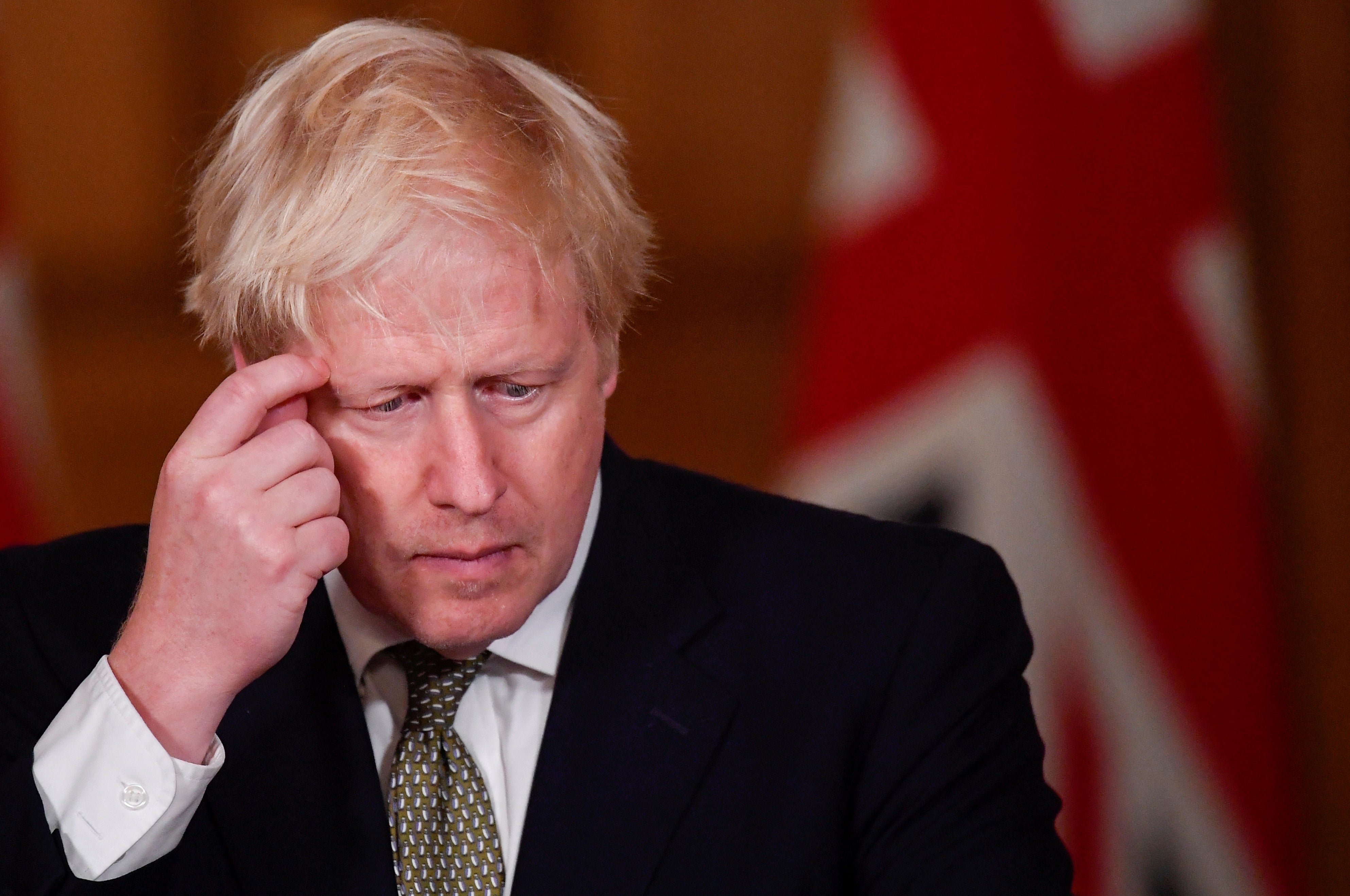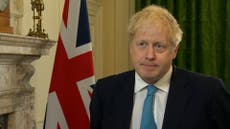With a second wave and a looming no-deal Brexit, what can Boris Johnson do to avoid a winter of discontent?
An unprecedented crisis awaits, writes Sean O'Grady. There is one option available to the prime minister – but he isn’t going to like it


It takes a small but unpleasant leap of imagination to envisage life in Britain in January 2021 – a mere 10 weeks or so away. The country may well be faced with the twin challenges of Covid-19 and Brexit hitting lives and businesses almost simultaneously. The second wave of cases and accompanying lockdowns could easily peak at around the same time that the Brexit transition period is due to end, on 31 December. Don’t forget that that date is enshrined in law, and still backed by a considerable body of opinion in the Conservative party. Not that the coronavirus knows or cares either way; it will just carry on going about its lethal business.
Even if the Covid-19 crisis isn’t as severe as it was in the first wave in the spring, and even if some sort of Brexit free trade deal is cobbled together, there would be a severe hit to the economy, about the size of what we might have used to think of as an unusually sharp recession, with some long-term loss of investment and national income.
If, however, there is a no-deal Brexit, with added chaos, and the NHS and testing systems cannot cope with the coming surge in cases and hospitalisations, the effect on the economy – jobs and investment – could be more dramatic still in the short term, and longer lasting.
Or, to put it in simple notation in either scenario: Covid + Brexit = Slump.First, a note on timings. Assuming that the various current regional lockdowns buy some time, but nowhere near enough to deliver an effective test-trace-isolate system, then a full national lockdown will probably be introduced in a slightly panicky way by, say, mid-November, in the face of an exponential rise in cases it will by then be too late to prevent. As with the spring lockdown it will need to last for about six weeks. It might even be even longer, given that this time it’ll be winter and compliance might be lower. The exact same strains on the economy and public finances will be felt again. This time, though the regional discrepancies might be wider, so the north, midlands, Northern Ireland and central Scotland will be hit harder than elsewhere and harder than last spring. Hospitals may run out of capacity and businesses will suffer much more from absenteeism. Unemployment will rise, and more families will be pushed into destitution, even with enhanced social security.
Britain has learnt the hard way that the Covid-19 crisis has its greatest economic impact on an economy that depends on the hospitality and leisure sector. At its worst it will hit the entire economy, possibly including vital supply chains for supermarkets and fuel.
At about the same time, some of those same regions and sectors will be hit hardest by a no-deal Brexit. Again the whole logistics of a modern economy will be affected by debate at borders and the extra costs of doing business. We already know about the giant lorry parks in Kent; what it entails though is shortages of everything from certain foods to medicines to components for manufacturing.
In some sectors and regions, then, coronavirus will be a bigger direct hit than Brexit – say for hoteliers, construction, residential property, public transport, hairdressers, pubs or the tourist trade. In other cases and places the Brexit effect will be felt much more acutely – in car-manufacturing towns, in the pharmaceutical industry, electricity supply (because Britain imports some from Europe), aerospace, food and drink, farming and financial services. Even the fishing industry might find itself short of the means of transporting its catches to newly closed off European buyers.
Of course, in the unluckiest places the double whammy of Brexit and Covid will be mutually reinforcing, enough to send them into the kind of slump not seen since the Second World War. Whole populations will be reliant on whatever funds can be found by the Treasury.
Nationally, though, the biggest most, far-reaching effects would be on the intricate time-critical supply chains on which so much of our lives depend. Even a partial collapse in vital supplies would cause panic and distress, another twist in the downward economic cycle. The other major twin hit could be in the supply of labour. In hospitals and care homes, for example, a lower supply of staff from the EU added to an unusually high Covid casualty rate could leave some with too few doctors, nurses and auxiliary staff to maintain basic care.
There is also the question of how far HM Treasury would (or should) be able to borrow or print the money needed to support such a weakened economy – when that very weakness threatens its ability to service the debt in the long term.
The overall effect would be analogous to the oil crisis and miners strikes of 1973-74 , the winter of discontent of 1978-79, and the financial collapse of 1931 all rolled into one, but now with a prime minister still proclaiming that with “high hearts” Britain is about to “prosper mightily” in its newly independent, though disease-ridden, state. The winter of discontent is not inevitable. A simple phone call to Ursula von der Leyen would postpone a no-deal Brexit and buy Britain some time by pushing the end of the transition period back. It would though not be popular among Tories, even now, and mean that Boris Johnson would have to change his own law with the help of Labour votes in the Commons. It seems inevitable, though, given the alternatives. The final ironic twitchings of Johnson’s famous slogan of “Take Back Control” are at hand.



Join our commenting forum
Join thought-provoking conversations, follow other Independent readers and see their replies
Comments